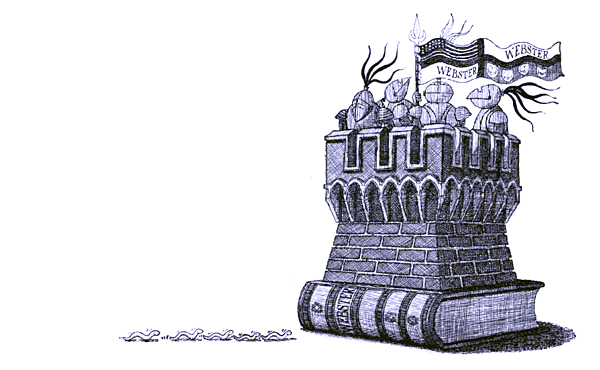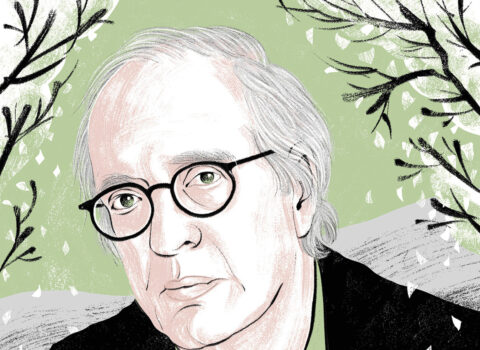
The stunt book–wherein our author undertakes an activity of dubious or dangerous oddity and emerges, huzzah, with an inspiring tale of unlikely trancendence–has its risks. It is one thing to read about an average Joe’s sixty seconds in professional sports, but perhaps another to experience the drama of an average Jane’s year without shopping. The most interesting (to me, of course) of the recent stunt books is surely Ammon Shea‘s latest, Reading the OED, a book that put me in the mind of my favorite stunt book, Noah Webster’s An American Dictionary of the English Language (1828). Whereas Shea’s is the story of his sitting down to read through the 21,730 pages of the twenty volumes of the 2nd edition of the Oxford English Dictionary in one year, Webster’s was the tale (embodied) of his sitting down and, over the course of twenty-seven years, writing the last English dictionary composed by a single individual.
Consider NW’s definition of “politics”:
The science of government; that part of ethics which consists in the regulation and government of a nation or state, for the preservation of its safety, peace, and prosperity; comprehending the defense of its existence and rights against foreign control or conquest, the augmentation of its strength and resources, and the protection of its citizens in their rights, with the preservation and improvement of their morals. Politics, as a science or an art, is a subject of vast extent and importance.
What with its ethical imperative, such a definition makes for a more thought-provoking take, don’t it, than the one to be found in my laptop’s New Oxford American Dictionary:
The activities associated with the governance of a country or other area, esp. the debate or conflict among individuals or parties having or hoping to achieve power
More feat than stunt, to be sure, Webster’s great work, and the font which fed my favorite dictionary, Webster’s New International Dictionary, 2nd Edition, aka Webster’s 2nd Unabridged. So said, for your weekend read, I suggest perusing the father of all American Dictionaries, a hefty scanned version of a (sadly, somewhat) abridged 1858 edition of Webster’s late-life work. And if you can manage to get through the whole thing over Columbus Day, who knows: you might get a book out of it.





